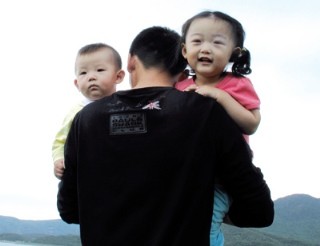Couples who wish to have a second child have been advised to wait for the laws to be amended or face penalties, a population expert said, following announcement on Thursday, Oct. 29, that China’s one-child policy is about to expire.
According to Jiang Weiping, director of the China Population and Development Research Center, the new policy must be in accordance with regional population and family planning laws.
Jiang added that a second child born before the regulations are passed into law will be considered illegal.
The director further said that people's congresses or their standing committees in provinces, autonomous regions and municipalities will have to determine the necessary measures. People's congresses at provincial level or their standing committee will revise local regulations or make new ones, under the guidance of the National Health and Family Planning Commission.
"The timeline for the operation of the new 'two-child policy' in different regions will determine when the second newborn baby will be able to have a legal identity," Jiang said.
According to the report by China Daily, several regions in China introduced a second-child policy last year. The report, however, said that parents in 17 provinces and autonomous regions who had a second child before the new local regulations were finalized still faced financial penalties.
Following the easing of China's family planning policy, parents who opt to have one child or decide to have a second child are no longer eligible to receive government awards such as a monthly bonus.
"The number of new births will definitely increase in the coming years and we estimate that the peak will be over 20 million newborn babies," Wang Pei'an, vice minister of the NHFPC, said.
Wang said in a news release on Friday, Oct. 30, that about 60 percent of China's child-bearing women at present are over 35 years old, which could result in an increase of "elderly" mothers in China in the next few years.
"It's safe to say that the two-child policy won't bring huge pressure on food security and basic public services, such as health, education and employment," Wang said, as he expected that another 30 million working people aged between 15 and 59 will be added by 2050. "It will benefit economic growth in the long term," Wang added.
After the Communist Party of China Central Committee's four-day meeting in Beijing this week, the central government announced that the government will allow every couple to have two children. Currently, only couples where both partners are an only child can have two children.



























